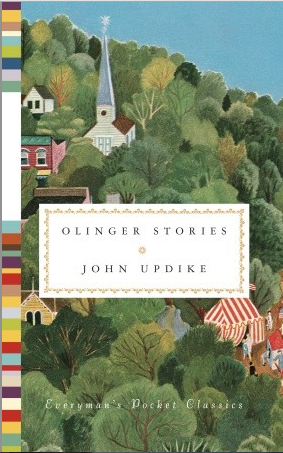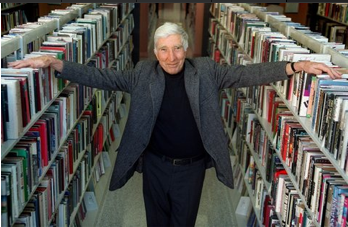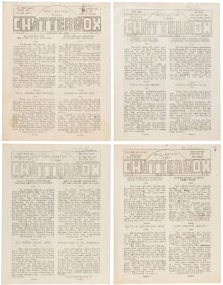
On October 7, 2014, Everyman’s Library will publish a 50th-anniversary edition of
Olinger Stories, by John Updike. Originally published in the fall of 1964 as a Vintage paperback original, this Everyman’s edition will mark the book’s first appearance in hardcover—and its return to print as a separate volume after being out of print for about 40 years.
Olinger Stories is being published in Everyman’s “Pocket Classics Series” in a format matching The Maples Stories, which was published in 2009. Random House offers this synopsis:
“The first one-volume hardcover edition of the eleven autobiographical stories that were closest to Updike’s heart. With full-cloth binding and a silk ribbon marker. EVERYMAN’S POCKET CLASSICS.
In an interview, Updike once said, “If I had to give anybody one book of me, it would be the Olinger Stories.” These stories were originally published in The New Yorker and then in various collections before Vintage first put them together in one volume in 1964, as a paperback original. They follow the life of one character from the age of ten through manhood, in the small Pennsylvania town of Olinger (pronounced, according to Updike, with a long O and a hard G), which was loosely based on Updike’s own hometown. “All the stories draw from the same autobiographical well,” Updike explained, “the only child, the small town, the grandparental home, the move in adolescence to a farm.” The selection was made and arranged by Updike himself, and was prefaced by a lovely 1,400-word essay by the author that has never been reprinted in full elsewhere until now.”
Suggested retail price for the 200-page book is $16.00, but the
Amazon pre-order price is currently $12.05, or 25 percent off.



